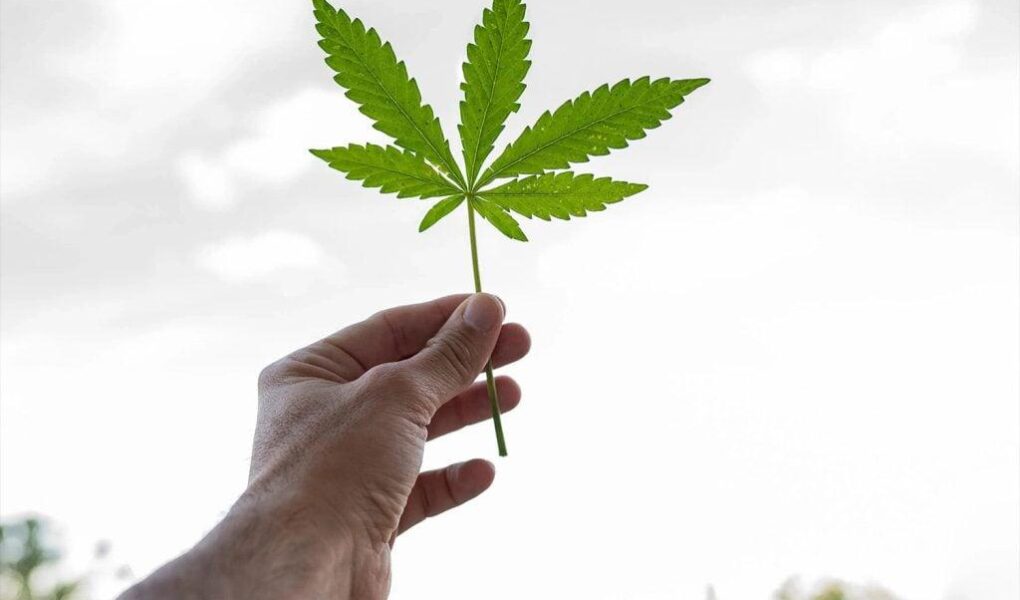In the ever-evolving landscape of health and wellness, few topics spark as much debate and curiosity as marijuana. Once relegated to the shadows of stigma and prohibition, this ancient plant has stepped into the light, inviting a wave of research and discourse around its numerous uses and implications. From pain relief and anxiety reduction to potential risks of dependency and cognitive impairment, the health effects of marijuana are as multifaceted as the plant itself. As society grows increasingly open to discussing its medicinal properties, it becomes essential to sift through the haze and explore the scientific findings behind its impact on our bodies and minds. This article aims to illuminate both the potential benefits and risks associated with marijuana use, providing a comprehensive overview for those seeking to understand its role in contemporary health discussions.
Table of Contents
- Understanding the Impact of Marijuana on Mental Health
- Examining Physical Health Outcomes Associated with Cannabis Use
- Navigating the Legal Landscape and Health Considerations
- Practical Tips for Responsible Marijuana Consumption and Wellness
- Q&A
- Concluding Remarks
Understanding the Impact of Marijuana on Mental Health
The relationship between marijuana and mental health is complex and multifaceted. Research has shown that while some individuals may experience relief from anxiety and depression with marijuana use, others might face exacerbated symptoms. Factors such as dosage, frequency of use, and the individual’s personal history with mental health issues play a significant role in the drug’s effects. It’s essential to acknowledge that cannabinoids can interact with the brain’s wiring differently for each person, leading to varied outcomes. Some potential impacts include:
- Short-term euphoria which may elevate mood temporarily
- Increased anxiety or paranoia in certain users
- Altered perception of reality and impaired cognitive function
- Potential for addiction or dependency in some individuals
Continued use or high-potency strains of marijuana might contribute to more severe mental health issues, such as psychosis or schizophrenia, particularly in those predisposed to these conditions. The emerging landscape of legalization and medicinal use has intensified the need for comprehensive studies to evaluate and understand these risks. It is crucial to consider potential protective measures and treatment avenues, as illustrated in the table below:
| Protective Measures | Potential Treatments |
|---|---|
| Education about risks | Therapy and counseling |
| Mindfulness practices | Medication adjustments |
| Community support | Regular mental health check-ups |
Examining Physical Health Outcomes Associated with Cannabis Use
As the landscape of cannabis legislation evolves, understanding its impact on physical health becomes increasingly vital. Studies have identified a range of outcomes associated with cannabis use, both positive and negative. For example, some users have reported relief from chronic pain conditions, potentially due to the anti-inflammatory properties of cannabinoids. On the other hand, regular consumption may lead to respiratory issues, particularly when smoked, as the inhalation of any combusted material can irritate lung tissues. The following points outline significant physical health outcomes linked to cannabis use:
- Chronic Pain Relief: Users may experience reduced pain perception.
- Increased Heart Rate: Cannabis can cause a temporary spike in heart rate.
- Respiratory Issues: Smoking cannabis can lead to chronic bronchitis symptoms.
- Nausea and Appetite Stimulation: Helpful for individuals undergoing treatments like chemotherapy.
Research also highlights the importance of dosage and delivery method in determining health outcomes. While some formulations like oils or edibles might mitigate respiratory risks, they come with their own set of concerns, such as potential overdosing effects. It’s essential for individuals considering cannabis for medicinal or recreational use to be mindful of their personal health profiles and possible interactions with other substances. The table below summarizes some common delivery methods and their associated physical health implications:
| Delivery Method | Health Implications |
|---|---|
| Smoking | Can irritate lungs; fast effect onset. |
| Edibles | Delayed onset; risk of overconsumption. |
| Vaporization | Reduced respiratory risks; quicker effect than edibles. |
| Tinctures | Easy dosing; longer effect duration. |
Navigating the Legal Landscape and Health Considerations
The intersection of marijuana use and legal regulations varies significantly across different jurisdictions, prompting a complex relationship between user safety and compliance. Understanding the laws governing marijuana is essential for users, especially as many regions are witnessing evolving legislation. These laws often address various aspects, including possession limits, cultivation guidelines, and age restrictions. It is vital for users to stay informed about both state and federal regulations, as violating these can lead to legal repercussions. Furthermore, interactions with healthcare providers may be impacted by legal status, affecting access to health care or insurance coverage related to marijuana use.
Health considerations surrounding marijuana are equally crucial, particularly as research continues to explore both its therapeutic benefits and potential risks. Key health factors to consider include:
- The impact on mental health, including potential triggers for anxiety or depression.
- Respiratory issues, particularly with regular smoking.
- The risk of dependency, as not all users experience the same psychological effects.
To illustrate the various health effects linked with marijuana use, the following table summarizes both benefits and risks:
| Benefits | Risks |
|---|---|
| Pain relief | Anxiety and paranoia |
| Management of chronic conditions | Addiction potential |
| Improved appetite | Impaired cognitive function |
Practical Tips for Responsible Marijuana Consumption and Wellness
When engaging in marijuana consumption, it’s essential to prioritize your health and well-being. Begin by understanding your own body chemistry and tolerance levels, which can vary greatly from person to person. Start with a low dose and gradually increase it to gauge how you respond. Choose the right consumption method that aligns with your lifestyle, whether it’s smoking, vaping, or edibles, keeping in mind the delayed effects of edibles can catch some off guard. Additionally, consider consuming in a comfortable environment, surrounded by trusted friends, to ensure a positive experience.
It’s also beneficial to remain informed about the strain and its cannabinoid profile. Indica strains often provide relaxation, while sativa strains may elevate your mood or boost creativity. Implement the following tips for a balanced approach to consumption:
- Stay Hydrated: Drink plenty of water before, during, and after to combat dry mouth.
- Avoid Mixing: Refrain from combining substances, as it can lead to unpredictable effects.
- Set Limits: Establish personal boundaries regarding frequency and quantity.
- Document Your Experience: Keep a journal to monitor your reactions and adjust your method accordingly.
Consulting with healthcare professionals knowledgeable about marijuana can be invaluable in tailoring your consumption to your specific health needs. If you are on medications, understand possible interactions by referring to the following table:
| Medication Type | Possible Interaction with Marijuana |
|---|---|
| Antidepressants | May increase sedation |
| Blood Thinners | Can alter effectiveness |
| Anti-anxiety Medications | May enhance effects leading to increased drowsiness |
Q&A
Q: What are some of the primary health effects associated with marijuana use?
A: Marijuana’s health effects can be quite varied, largely depending on the individual, the method of consumption, and the amount used. Commonly reported effects include relaxation and euphoria, alongside potential increases in appetite — often referred to as “the munchies.” Some users report enhanced sensory perception. On the flip side, marijuana can also lead to adverse effects such as short-term memory impairment, anxiety, or paranoia in some individuals, especially with higher doses.
Q: How does marijuana affect mental health?
A: Research indicates that marijuana can have both short-term and long-term impacts on mental health. For some, it may provide temporary relief from stress, anxiety, or depression. However, for others, particularly those with a predisposition to mental health disorders, regular use can exacerbate conditions like depression or anxiety, and in some cases, it may trigger psychotic episodes. Therefore, it’s crucial for individuals to assess their mental health history before using cannabis.
Q: Is marijuana addictive?
A: While many people use marijuana without developing dependence, the substance can be addictive for some. Studies suggest that around 9% of those who use marijuana may develop a dependence, with this rate increasing to around 17% for those who start using in their teens. Withdrawal symptoms can include irritability, insomnia, and decreased appetite, which may indicate a form of physical or psychological dependence.
Q: Can marijuana use impact physical health?
A: Yes, marijuana can affect physical health, particularly when smoked. Inhalation can irritate the lungs and contribute to respiratory issues similar to those associated with tobacco smoking. However, alternative methods such as edibles or vaporizers may mitigate some of these risks. Some studies also suggest that certain components of marijuana, like CBD, might offer anti-inflammatory properties, with potential benefits for chronic pain management.
Q: Are there any medicinal benefits of marijuana?
A: Yes, medical marijuana is increasingly recognized for its potential therapeutic benefits. It has been shown to alleviate chronic pain, reduce muscle spasms, and even assist in managing nausea related to cancer treatment. Additionally, certain cannabinoids have been studied for their applications in treating conditions like epilepsy and PTSD. However, it’s important to consult healthcare professionals regarding proper dosage and potential interactions with other medications.
Q: What are the legal considerations regarding marijuana use?
A: The legality of marijuana varies significantly across the globe. While many regions have legalized it for recreational or medical use, others maintain strict prohibitions. It’s essential for individuals to be aware of their local laws to avoid legal complications. Moreover, even in places where marijuana is legal, regulations may govern its possession, distribution, and use, particularly concerning age restrictions.
Q: Can marijuana affect the development of adolescents and young adults?
A: Yes, marijuana use during adolescence and young adulthood can pose potential risks, as this is a critical period for brain development. Regular use may interfere with cognitive abilities, impacting learning and memory. Some studies have suggested a correlation between early and heavy use of marijuana and an increased risk of mental health disorders later in life. Thus, parents and young adults should be informed about these potential impacts.
This Q&A aims to explore both the positives and negatives of marijuana use, fostering an informed and balanced perspective on its health effects.
Concluding Remarks
As we conclude our exploration into the multifaceted health effects of marijuana, it becomes clear that the conversation surrounding this plant is both intricate and evolving. While the potential therapeutic benefits offer a beacon of hope for many, the complexities of its impact on mental and physical health remind us of the need for careful consideration and informed choices.
Much like the green leaves that sway in the wind, opinions and research continue to shift, revealing new insights and challenges. Navigating this landscape requires a balanced perspective, recognizing that each individual’s experience with marijuana can vary widely. As more studies emerge and societal attitudes evolve, staying informed and engaging in open dialogue will be essential.
whether for healing, recreation, or personal exploration, the choice to embrace or abstain from marijuana is deeply personal and should be made with mindfulness and an understanding of the broader implications. As we look to the future, may we approach this subject with nuance and curiosity, fostering a deeper understanding of how this complex plant interacts with our health and well-being.



